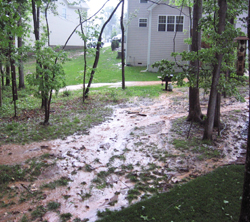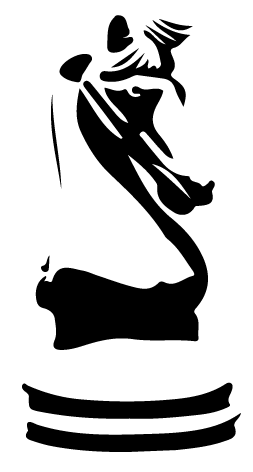Drainage Disputes between Adjoining Property Owners In L.A.
Issues involving water drainage frequently arise in San Diego and Southern California for property owners who live in on hillsides or where one property is below and adjoining property.
San Diego Hillside Property Owners and Drainage Laws
Natural water flow in Southern California is typically from small local creeks, brooks, springs or during rain events where the resultant storm water drainage can cause problems that can range from minor aggravations due to wet soil to costly, major headaches such as home flooding, mud flows, foundation damage from hydraulic pressure and the partial or complete undermining of foundations.
Local government regulations regarding water flow/drainage from one property to another are quite rare, especially in non incorporated, county, or rural areas. Therefore, water flow/drainage issues are normally governed by common law principles in California. In legal speak, the “dominant estate” (or dominant property) is the property at the higher elevation, from which water flows. The “servient estate” (or servient property) is the property with the lower elevation, onto which water flows.
 If water flow exists in its natural state, the owner of the property at the higher elevation has the right for that water to flow from their property onto all properties having lower elevations pursuant to the natural flow. That is, so long as water is flowing off the higher property at the natural flow (i.e., the speed, frequency, intensity and path of the water has not been changed from its natural condition).
If water flow exists in its natural state, the owner of the property at the higher elevation has the right for that water to flow from their property onto all properties having lower elevations pursuant to the natural flow. That is, so long as water is flowing off the higher property at the natural flow (i.e., the speed, frequency, intensity and path of the water has not been changed from its natural condition).
Moreover, the owners of the lower properties upon which water naturally flows cannot change that water flow to the detriment of the owner of the higher property. In other words, properties at a lower elevation must continue to “accept” water which flows naturally from properties located at higher elevations. If the owner of a lower property attempts to stop, alter, or impede such water flow and such alteration causes damage or injury to the higher property (for example, storm water is backed up onto the higher property, which did not occur before), the owner of the lower property could be held liable for money damages or subject to a cease and desist order from a court.
Conversely, the reverse of this common law rule is the mandate that the owner of the higher property may not change the conditions on their land in such a fashion as to increase the burden of the water flow onto the lower properties. That is, the owner of the higher property cannot – by development or other alteration of the land – increase the amount, frequency, intensity, or speed of water flow onto the lower properties in such a fashion as to injure or damage the lower properties. If the owner of a higher property alters water flow onto a lower property in such a fashion as to cause injury or damage, the owner of the higher property can be liable for money damages or be subject to a cease and desist order or an injunction from a court.
Upshot – In summary, anyone who alters the natural water flow or storm water drainage can potentially be liable for damages or be required by a court to put the land back the way it was before the alteration.
Exception is Drainage Easement by Prescription
One exception to this common law rule involves drainage easements by prescription. If someone has altered the natural water drainage and such alteration occurs or is tolerated for 15 years or longer, the property owner claiming damage could lose their claims. In that case, the property owner who altered the drainage for 15 years or longer may, in certain cases, obtain a drainage easement by prescription. If that occurs, the altered drainage which has occurred for more than 15 years essentially becomes the new natural water course.
Water Flow or Drainage Dispute?
What can a property owner do if it is believed that the neighboring property has been altered in such a fashion so as to adversely affect drainage onto their property? If you consult with Real Estate Attorney Valerie Kramer she will likely suggest it is usually beneficial to all parties involved to attempt to resolve drainage problems out of court without resulting to litigation. We would likely suggest that you have us present your case to the neighbor by letter or in a meeting to attempt to have the drainage issue resolved amicably. If the neighbor is resistant or unwilling to remedy the situation, the affected property owner will normally have to file a civil lawsuit for damages or injunctive relief. Attorney Valerie Kramer is sensitive to the cost of litigation and use litigation only as a last resort due to the expense, time and negative emotions involved.
Even if a compromise cannot be reached initially, the parties are sometimes willing to submit the dispute to a third party for mediation or binding arbitration, which can also lead to a resolution of the matter. Real Estate Attorney Valerie Kramer is experienced in Real Estate matters and working toward a cost-effective resolution for our clients.

Business Attorney Valerie Kramer understands that investing some time in getting your business contracts in order, handling common legal transactions, or negotiating a lease should be cost-effective.
Valerie Kramer is also a Real Estate Attorney and helps Property Owners, Buyers & Sellers, Real Estate Brokers, Commercial Tenants and others involved in everyday real estate transactions and disputes. Valeries’s clients get maximum value for every penny spent, without padded hours for unnecessary “additional services.”
Call me personally – (619) 259-5030
– Let’s talk through your issue or opportunity.
We Are Your San Diego Business Attorneys…
We are proud to serve San Diego and the San Diego County Area.
